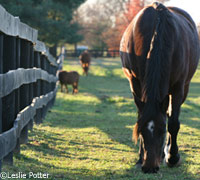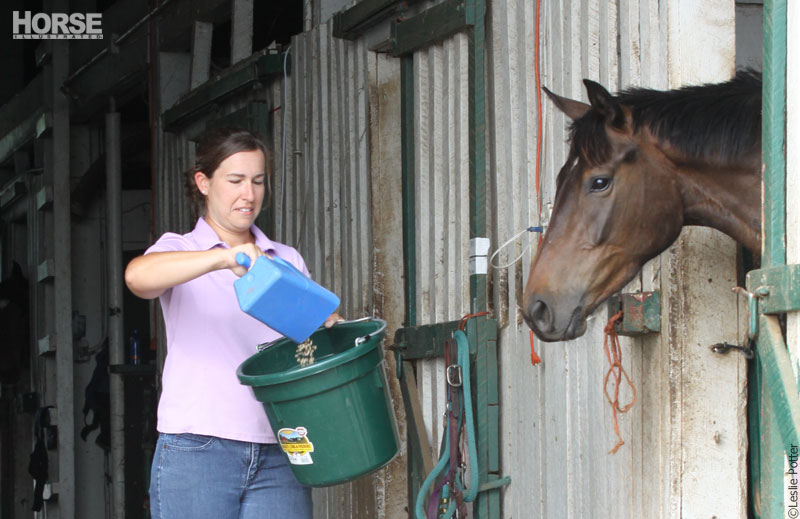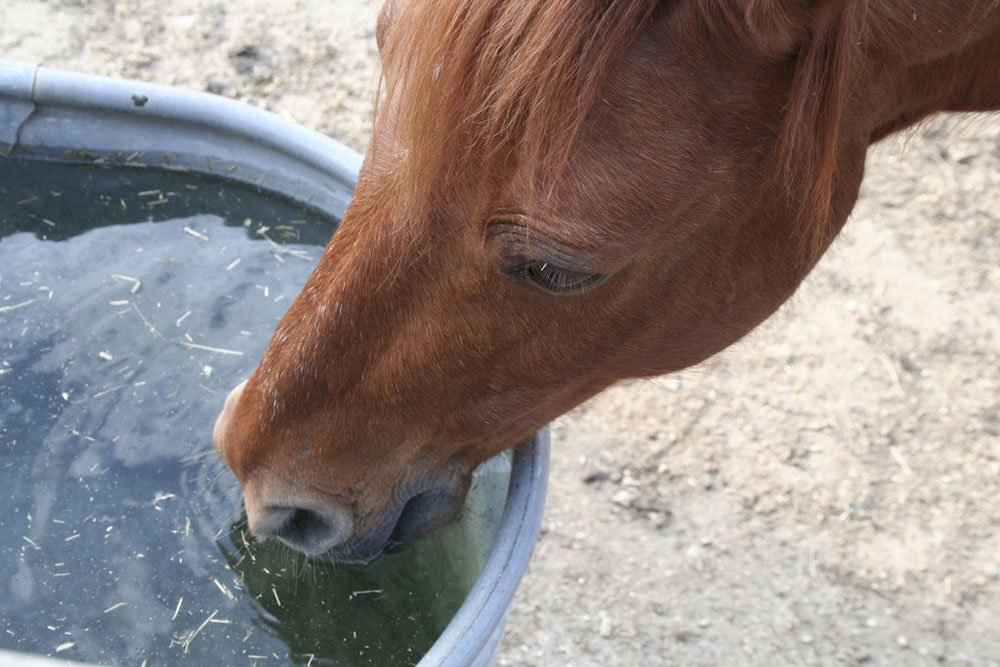 When it comes to enjoyment and quality of life, a horse’s true fitness may mean more than just a pasture and some oats. While most horses get the majority of their nutrients from pasture and grain, many may not be receiving the mineral nutrition needed for optimum health.
When it comes to enjoyment and quality of life, a horse’s true fitness may mean more than just a pasture and some oats. While most horses get the majority of their nutrients from pasture and grain, many may not be receiving the mineral nutrition needed for optimum health.
“It is important to remember that mineral content of forages and hay are determined by the mineral make-up of the soil where they are grown,” notes Dr. Glennon Mays, clinical associate professor at the Texas A&M College of Veterinary Medicine & Biomedical Sciences. “Therefore, if the soil lacks the mineral then the plant grown there will not have that mineral.”
Since soil types can vary from farm to farm and no one soil type has all minerals needed by a horse, mineral supplements are necessary, says Mays.
“Horses foremost need the minerals salt, calcium and phosphorus,” states Mays. “Salt is lost through sweat and urine so it should be available free choice to the horse at all times. Calcium and phosphorus are needed for healthy teeth and bones. Greatest need is in the first year of a horse’s life when it grows the majority of its height. Accordingly, lactating mares need higher amounts of calcium and phosphorus to keep elevated levels in their milk.”
“Calcium and phosphorus should be at least a 1 to 1 ratio,” explains Mays. “Since grains are low in calcium and high in phosphorus, some grains are adequate to meet phosphorus requirements but not calcium needs. Therefore, additional calcium is needed to develop the 1 to 1 ratio.”
Most hays have a high calcium to phosphorus ratio, but the nutritional value of the hay is dependent on the amount of fertilizer applied to the pasture and handling of the hay. By using a combination of grain and hay the proper calcium-phosphorus ratio can be obtained. Of course, poor quality forage could result in mineral deficiencies, notes Mays.
“The minerals magnesium and potassium are also important to a horse’s well being. Magnesium is needed for muscle and nervous tissue function, while potassium helps maintain the cell’s pH balance and internal cellular fluid pressure,” says Mays.
There are additional minerals (needed in very small amounts) that can make a difference in the health of a horse. The trace minerals cobalt, copper, iodine, iron, selenium, and zinc are needed to maintain healthy, productive horses.
Cobalt deficiency is rare but cobalt supplementation has been shown to enhance digestion and therefore increase energy from eaten forages, notes Mays. Copper is necessary to help the horse fight off bacteria and viruses as well as maintain connective tissue and hoof integrity. Iron is necessary for blood hemoglobin. Iodine is important to regulate metabolism and growth. Selenium is important to reproduction, growth, and the immune system. Zinc enhances bone development, healthy hooves and coat, and reproduction, explains Mays.
“Well balanced mineral supplements should be provided for your horse to insure quality health,” states Mays. “The horse is a grazing animal with a unique digestive system. It has a relatively small stomach and a large hindgut that holds fibrous matter which bacteria work to digest. Therefore, forage should be the first food of choice. However, forages do not provide sufficient amounts of minerals for horses, so supplements are necessary.”
Trace mineralized salt in block form will not meet the horse’s nutritional needs, notes Mays. These blocks are mostly salt and contain low levels of trace mineral. Because of their high salt content, the horse takes in small amounts of the supplement and even smaller amounts of trace minerals.
“Determine how much hay and grain your horse eats. Read the bag label for the analysis of the grain. Have the forage tested and nutritionally evaluated. Then determine which minerals and the amounts your horse is lacking,” explains Mays. “Purchase a mineral supplement that is closest to the needed nutrient requirements.”
Minerals are important ingredients necessary for your horse’s good health. Take the time to determine the amounts that your horse needs. When you do, you’ll enhance your horse’s performance and help prevent health problems.
Further Reading
Ten rules to feed by
Feed labels: Analyzing the nutritional guarantee
Supplements for horses





Good reading, also the follow up articles, under Further Readings.
Very good tips I always try to make sure mine has minerals salt out and salt blocks too.
It’s good to know the deficiencies in one’s area. We use a supplement specifically for the Northwest of the USA.
One’s local vet should be able to address this.